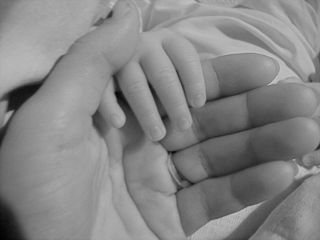Depression
The Booby Blues
Things No One Tells You About Post-Weaning Depression & Anxiety
Posted March 8, 2016

I'm writing today's blog more as a personal vs professional expert. I am a mom. I have nursed three babies and by now- I know that post-weaning depression and anxiety is real.
You hear a lot about post-partum depression. There are support groups, online communities, and thousands of bloggers detailing their own personal accounts. However, when doing my own search for post-weaning depression, I came up with TWO- count em' TWO whopping articles on this subject.
I write this in the throes of depression and anxiety brought on by this event. I thought it was important to anyone that might read this to know that a psychologist is not immune to this condition as well. While some may be quick to point out that I didn't have to wean at 9 months- I knew it was time for me. I wanted to go back to work and didn't want to lug a breast pump or miss out on the opportunity to work with clients every third hour because I had to pump. Besides, even if I did decide to continue nursing- all good things must come to an end at some point.
After both births of my now two year old twins and nine month old son- I fortunately escaped the grips of Post Partum Depression. I also took placenta encapsulation pills religiously with the knowledge of my own proclivity to depression. Solid research withstanding, in my experience I felt like they helped regardless of the many raised eyebrows from friends in the midwest who thought I for sure went "full hippie," when they heard this news and asked me to send them a dreamcatcher.
However, as I wean my nine month old son, I am reminded of just how I felt after weaning my twins; a sense of fragility and loss. I harbor a deep heaviness within my heart that hovers over me like a dark cloud even on a sunny day. I find myself wide awake at night with electricity coursing through my veins unable to fall back asleep no matter how many headspace meditations I do. My throat begins to tighten and my chest pangs with the ridiculously morose thoughts like "eventually they all will be grown and won't need me anymore."
The difference between a psychologist's depression and that of an everyday person is that we have learned to relate to our feelings in a different way than most:

Although I cycle through bouts of grief and sadness as my hormones are now in a state of flux- I can hold these feelings at arms length and mindfully observe myself going through what I know to be a completely normal event.
Yet, as I write this I am sure that there are countless numbers of women who may feel completely overwhelmed, helpless, and swept up in these emotions. Likely, they may not even know how they came on or if they will end (which is often the unnecessary extra layer of suffering in beginner depression- feeling as though life will always feel this way).
It is my hope- with this blog, I can play a small part in opening the door to that awareness. Although I am experiencing emotional pain at the moment- it isn't suffering because I don't marinate in it. I feel it, I accept it, but I don't let it take the best of me. I normalize myself and then I put one foot in front of the other (literally - I will just make myself get outside and realign with nature).
Instead of focusing on what I no longer have; that magical moment between mother and child when my oxytocin levels are at their highest and all the world tends to fade in the background- I look toward what I can do to get oxytocin elsewhere; I can kiss my husband, I can cuddle my dog, I can hug my kiddos. Instead of grieving- I can focus on healing. If I feel the detachment and isolation that often comes with post weaning depression- I can reconnect to those people that have the ability to mend my heart and my soul.
I engage in some form of self care that maybe I wasn't able to when I was breastfeeding as a means of reminding myself of the simultaneous liberation that is happening (extra glass of wine at dinner, that retinol overnight cream I've been dying to use but never could, an extra cup of coffee, maybe even teeth whitening now to reverse all that extra wine and coffee I'm imbibing, a foot soak in tea tree oil that is supposed to basically be baby poison if you do any cursory google search, an extra hour away from the house when I was formerly tied to a 3 hour window, or ).
I reach out to my girlfriends. I write a blog that millions (but probably my mom and the three people she shares it with) will see and discuss my experience as one might discuss the common cold. It is not a sign that I am weak, crazy, or abnormal. To the contrary, it is a sign that I'm a very normal feeling human.
I am navigating all of this parent stuff one day at a time like the rest of us. But one thing I do know for sure is this too shall pass. As a psychologist, I hope that one day all people will talk about their emotional ups and downs the same way they do the common cold. As a mother, I hope my children will learn that all emotions (even the intense ones) are ok to feel and a very poignant reminder that we are alive.
Dr. Colleen Long is the author of Happiness in B.A.L.A.N.C.E: What We Know Now About Happiness. Dr. Long is a licensed psychologist based in Boston, Massachusetts with an additional practice in Los Angeles, California. She did her undergraduate studies at Indiana University and New York University, and finished her Master's and Doctoral degrees at Spalding University in Louisville, Kentucky.
She is the owner and founder of Mellow Comprehensive Psychological Services in Boston and Los Angeles and Manhattan Beach, California. She also started Mellow Self Help Therapy for people wanting to try self help before taking the next step and entering therapy. Dr. Long is frequently consulted as a media expert for E!, CNN, HLN, and The Discovery Channel. Dr. Long is an ongoing expert on the behavioral bureau for On Call with Dr. Drew on HLN.
For more on Dr. Long, please visit her website: www.drcolleenlong.com or follow @talkdoc on Twitter.




